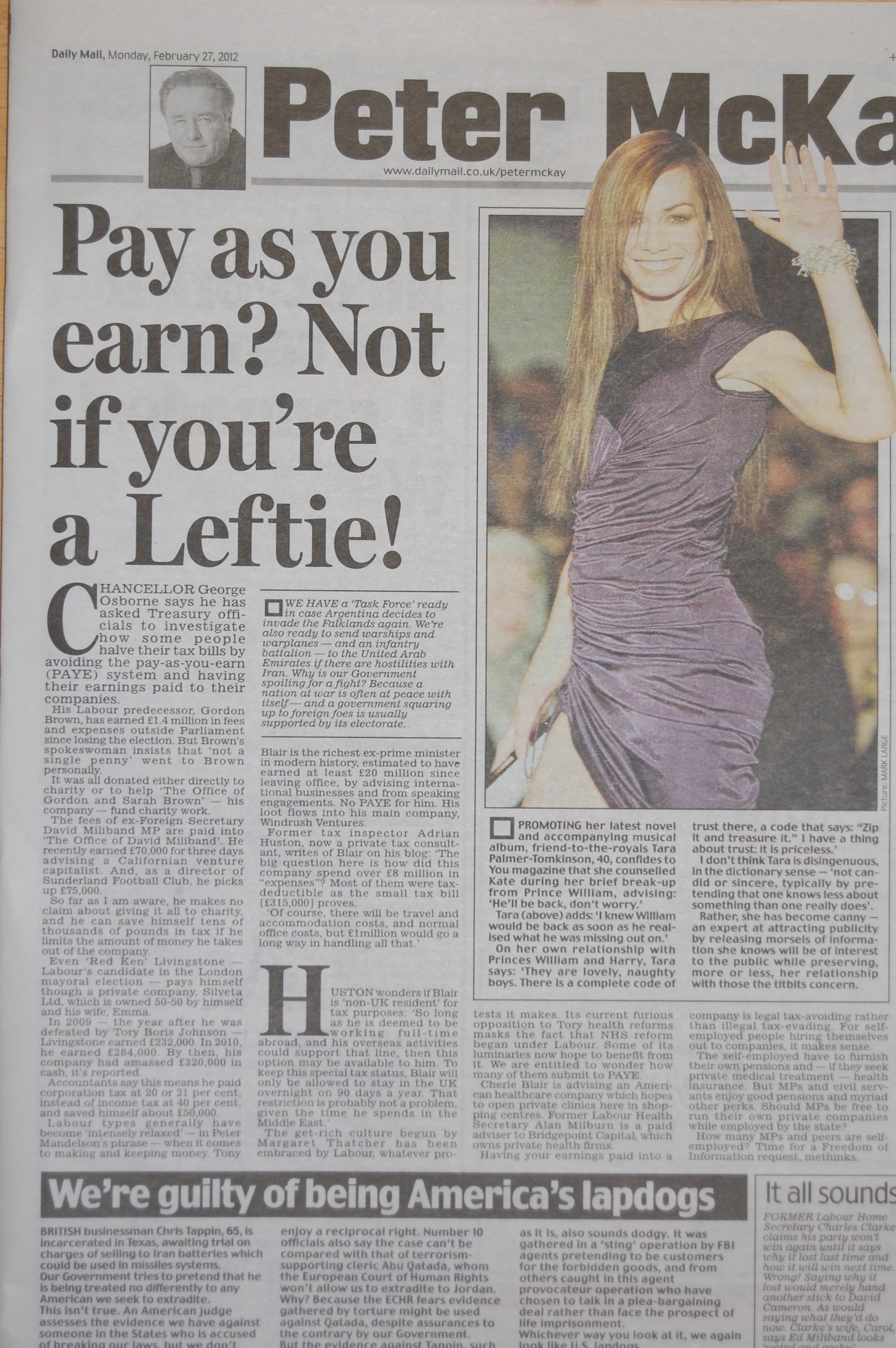The Daily Telegraph reported on 9 November 2012 that that same week a bank whistleblower had grassed up 4,388 UK people with accounts at HSBC in Jersey.
HMRC has, unusually, confirmed that they have received this information and will be using it to check the tax rules ‘are being respected’. What a lovely phrase!
What have HMRC been given?
Details of over 4,000 people in the UK who had money in HSBC in Jersey, sometimes known as HSBC Expat. This means their name, UK address and the amount in the HSBC account.
The average balance in the accounts disclosed is £337,000.
Whose accounts are these?
The accounts are held by a wide range of people from people who are now retired to senior figures in the City, to criminals of various sizes. They will doubtless be from all parts of the UK.
My own experience as a Tax Inspector, and more recently as a tax consultant, tells me that people in Northern Ireland have a particular attraction to putting their money in Jersey, Guernsey or the Isle of Man.
Should everyone named be scared?
Absolutely not. There is nothing illegal in having money in Jersey or anywhere else offshore. Wat is illegal is not paying the right UK tax. The tradition of banking secrecy surrounding the Channel Islands, Switzerland, Leichtenstein and the Isle of Man has encouraged certain behaviour. This behaviour may, in itself, be illegal.
So who has something to fear?
You should worry if the existence of your money offshore points to some form of illegal activity, including tax evasion. This could mean:
- The source of the money invested was not properly declared and taxed, or
- The means of obtaining the money invested was itself criminal (drugs, guns, bribery etc), or
- The interest earned on the accounts was not declared.
This last point is interesting. We help a lot of people to declare offshore savings and income, sometimes going back many years. In some cases the original source of the money is completely legit. For example the life insurance when your spouse died, or a transfer from a UK savings account. Where people have come unstuck is that once the legal money was offshore they failed to declare the interest it earned. That then becomes illegal tax evasion.
If you have an undeclared offshore account…
Now is the time to confess to HMRC – that is before they come to you. In general you will be given an easier time if you come forward to HMRC to tell them something was wrong with your tax affairs. You will also generally pay a lower penalty – that is what is added to the bill as a percentage of the tax you owe.
Who will help me with this?
I would say a person who declares offshore income without professional help has a fool for a client. This is a case where expert help may save you thousands, and will get the matter closed more quickly. (These are stressful experiences.) You may feel that your regular accountant does not have the practice and expertise in handling such tax investigations. It is for this reason that we are often brought in. When the case is closed we then hand the client back to the regular accountant to continue with routine tax returns and preparing of business accounts.
And if I am on HMRC’s list and do nothing?
Then you simply check the post every morning wondering when HMRC will write to you. Of course they might call in person or phone your accountant.
What HMRC will NOT do is email you about your offshore account. If you get an email from HMRC with an allegation (or good news about a refund) then the email is false and should be reported by forwarding it to phishing@hmrc.gsi.gov.uk
This is just the latest of a range of banking disclosures HMRC has received from whistleblowers – some of whom were paid substantial rewards. (See video here). It seems this is likely to continue and whoever still has offshore money hidden should be afraid.
Adrian Huston, a former tax inspector, is a director of Belfast tax and accountancy firm Huston & Co – www.huston.co.uk or 028 9080 6080. He and his former Tax Inspector wife Felicity Huston specialise in handling tax investigations and disclosures to HMRC.
Adrian also appears on TV radio and in the press commenting on tax matters. See www.YouTube.com/HustonTV

